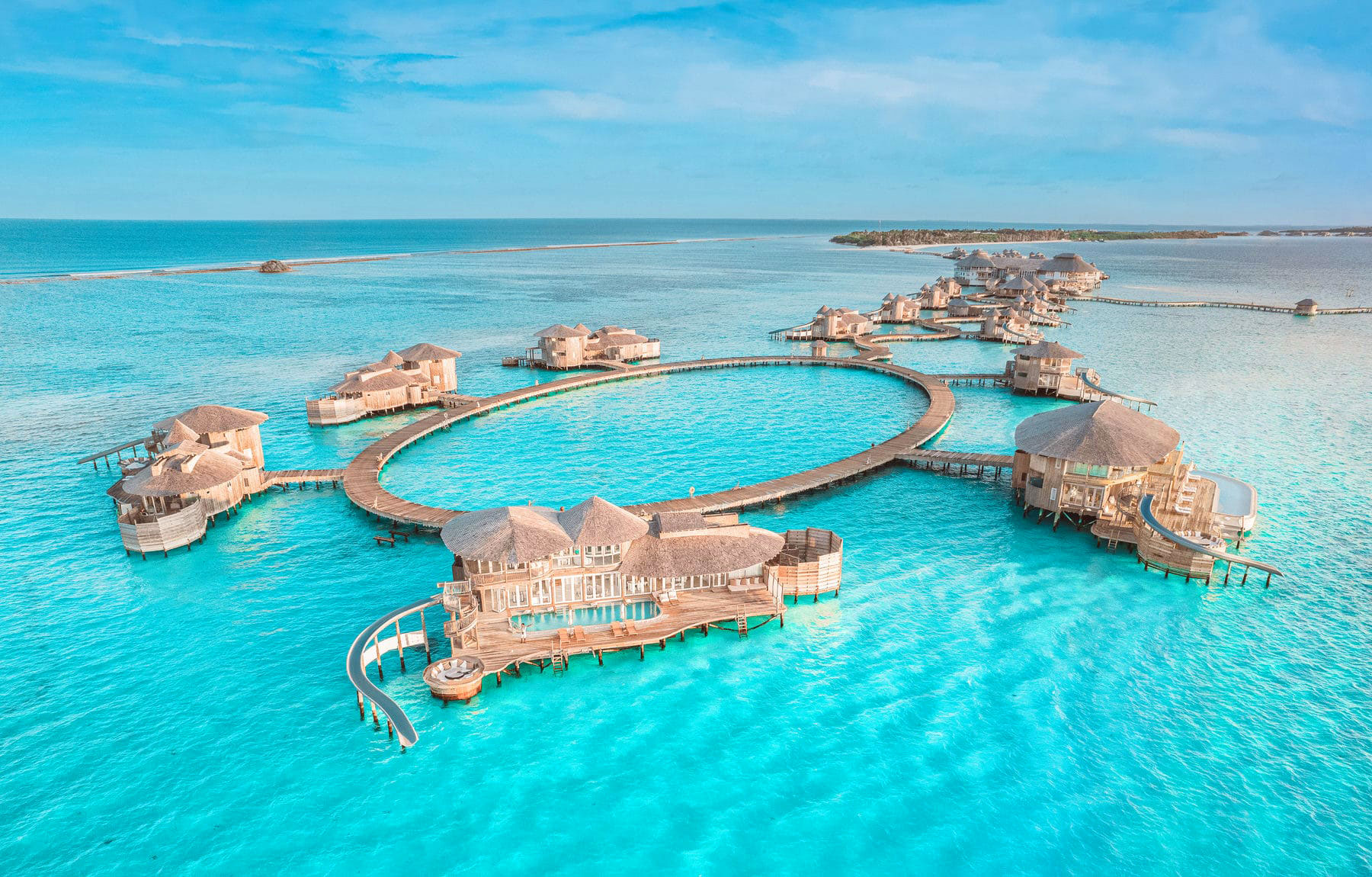
Soneva Jani is a self-contained utopia set above the crystal calm waters of the Maldives. It has everything you need to never have to leave, and it proves that luxury and sustainability can coexist.
There’s a reason so many people choose overwater bungalows for their honeymoons, or when they’re splurging on a once-in-a-lifetime getaway, or when they’re just well-off and looking to get well and truly gone. As sure as they stand on spindly legs above crystal clear waters, these seaborne accommodations stand for a modern luxury vacation experience that’s as sensuous and indulgent as anything you can imagine.
The Maldives is the undisputed leader of the form, hosting some two-thirds of the world’s overwater bungalows. With Soneva Jani, they may also have the world’s best.
The founders of Soneva — Sonu Shivdasani and Eva Shivdasani — met on a yacht in Monte Carlo, and there’s no way around it, their Soneva Jani resort is extravagant and expensive. But what you get in return is a utopia so calm and self-contained it’s nearly suburban. Dozens of hovering bungalows line up along a wooden jetty in the lagoon, the precisely cut pools on each deck like freshly mowed lawns. There’s even something of a mall — a three-story, open-air structure that’s among the largest of its kind in the country, where restaurant, bar, spa, and library form a floating social center.
It’s not just the scale that keeps guests returning year after year — by the resort’s calculations, half of all guests are repeat customers — it’s also the whimsy. Other prestigious hotels, with their high-class and oftentimes ostentatious decor, tend to have a weightiness that reminds you to take them seriously. Soneva Jani is different — a dreamland seemingly floating on air as much as on water. Here, villas are more like fantasies than works of art, or maybe like playgrounds, with slides into the lagoon and retractable, star-gazing roofs over the beds.

Barefoot luxury is an overused phrase, its meaning lost to too many press releases. At Soneva Jani, it’s literal. The explicit policy here is No News, No Shoes — a specific type of escape where, upon arrival, your ubiquitous butler places your footwear in a bag and whisks it away to your room with the rest of your luggage. You’re not expected to need shoes again.
It’s a philosophy of nearly forced relaxation that’s worked for Soneva, even as they cater to a highly specific, highly strung clientele. “Questioning what is truly rare, but desired, by the urban elite has worked,” the resort tells Tablet. On most of their trips, the type of people who make it to Soneva Jani find themselves packing for business. “A suit, black formal shoes, a dress or high heels.”
“In contrast, when they pack to go to Soneva, there is space in the suitcase for books, camera, a snorkel mask… In other words, the guests start to pack for themselves, rather than for others.”
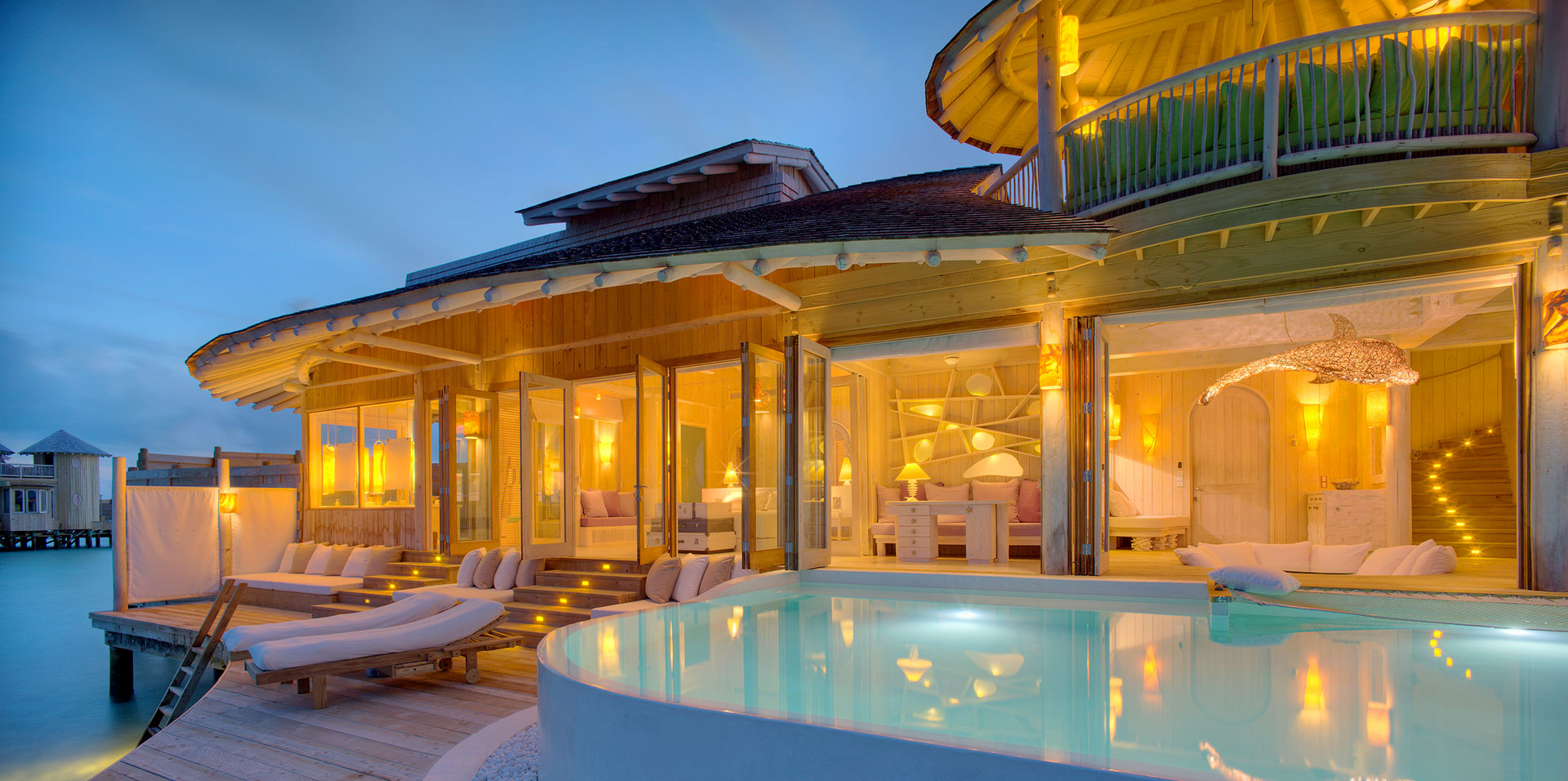
Accommodations are massive. A one-bedroom overwater villa spans some four thousand square feet, and overwater and dry-land bungalows expand from one to four bedrooms. They feature spacious terraces, indoor and outdoor areas, and plenty of spots for lounging and bathing. Inside and out, every facet accentuates the natural. Furniture is made from driftwood, while floor-to-ceiling windows on the ground floors of certain villas are echoed by glass slats on the floors, looking straight down into the lagoon.
It’s enough to keep you in your villa for days at a time, but we meant it when we said Soneva Jani is like a suburb out to sea, or maybe even a small city. A handful of permanent restaurants — the Crab Shack, an outdoor grill station, an upscale raw-food cabana — accompany a dozen options for dining around the islands or the beaches. You can also choose to take your meals at the overwater movie theater, where you’ll receive a set of bluetooth headphones so the wildlife isn’t disturbed. Or just dine at the Bond-inspired observatory, taking in a lecture from the in-house astronomer. Nearly every type of experience you’d expect to find here is on offer, from dolphin cruise to snorkeling, from diving to the two spas (your choice of overwater or nestled within the trees).
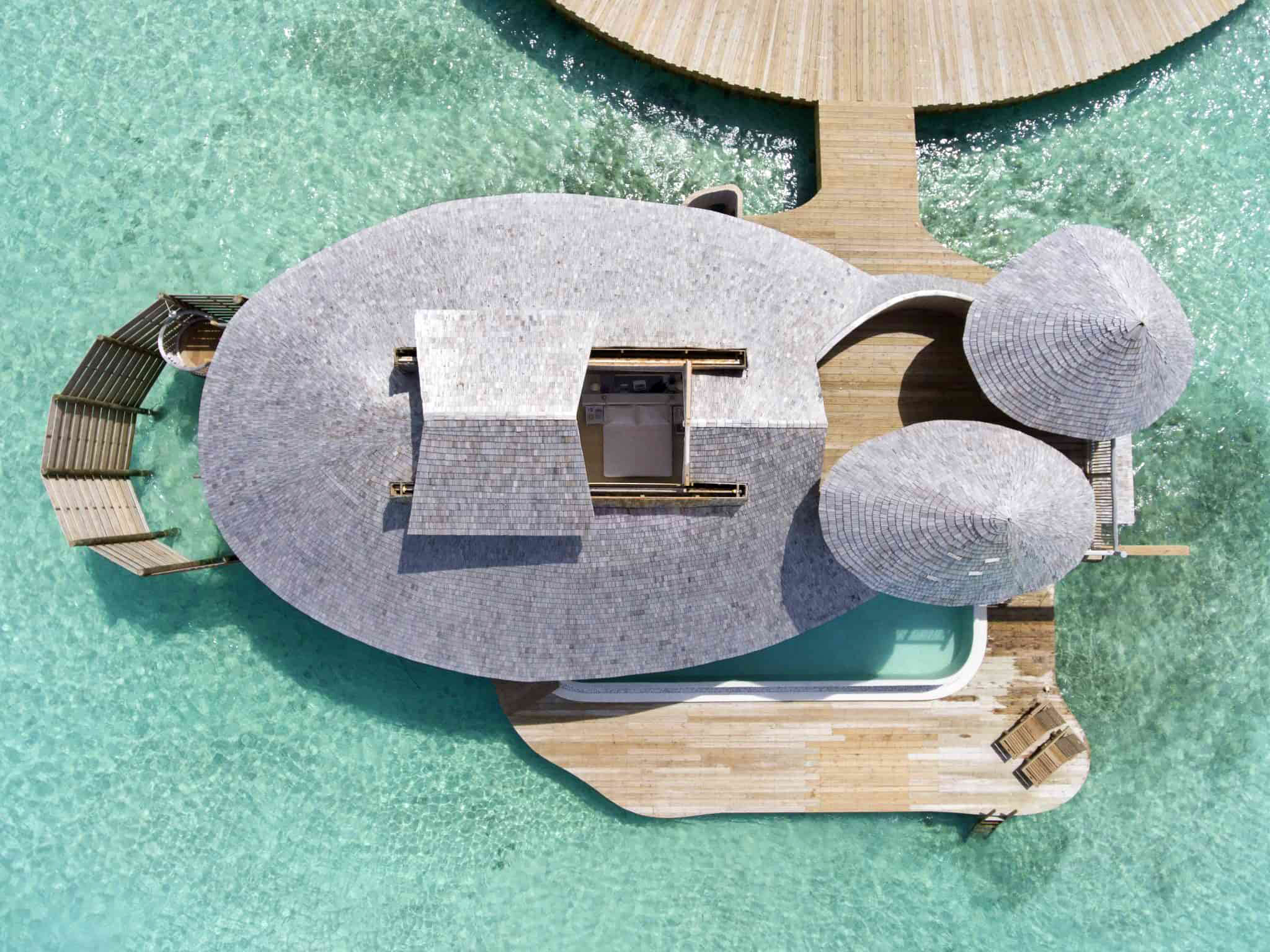
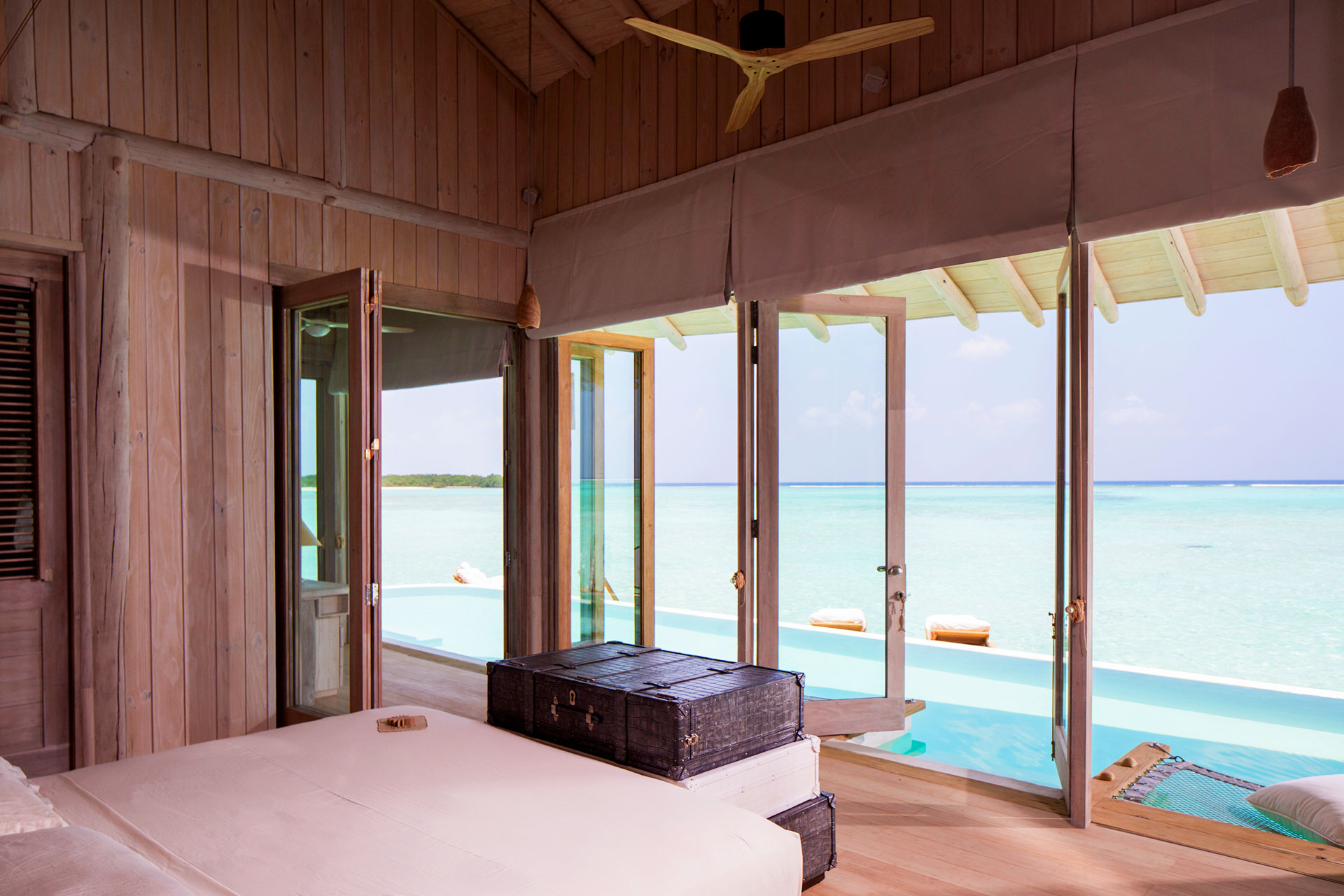
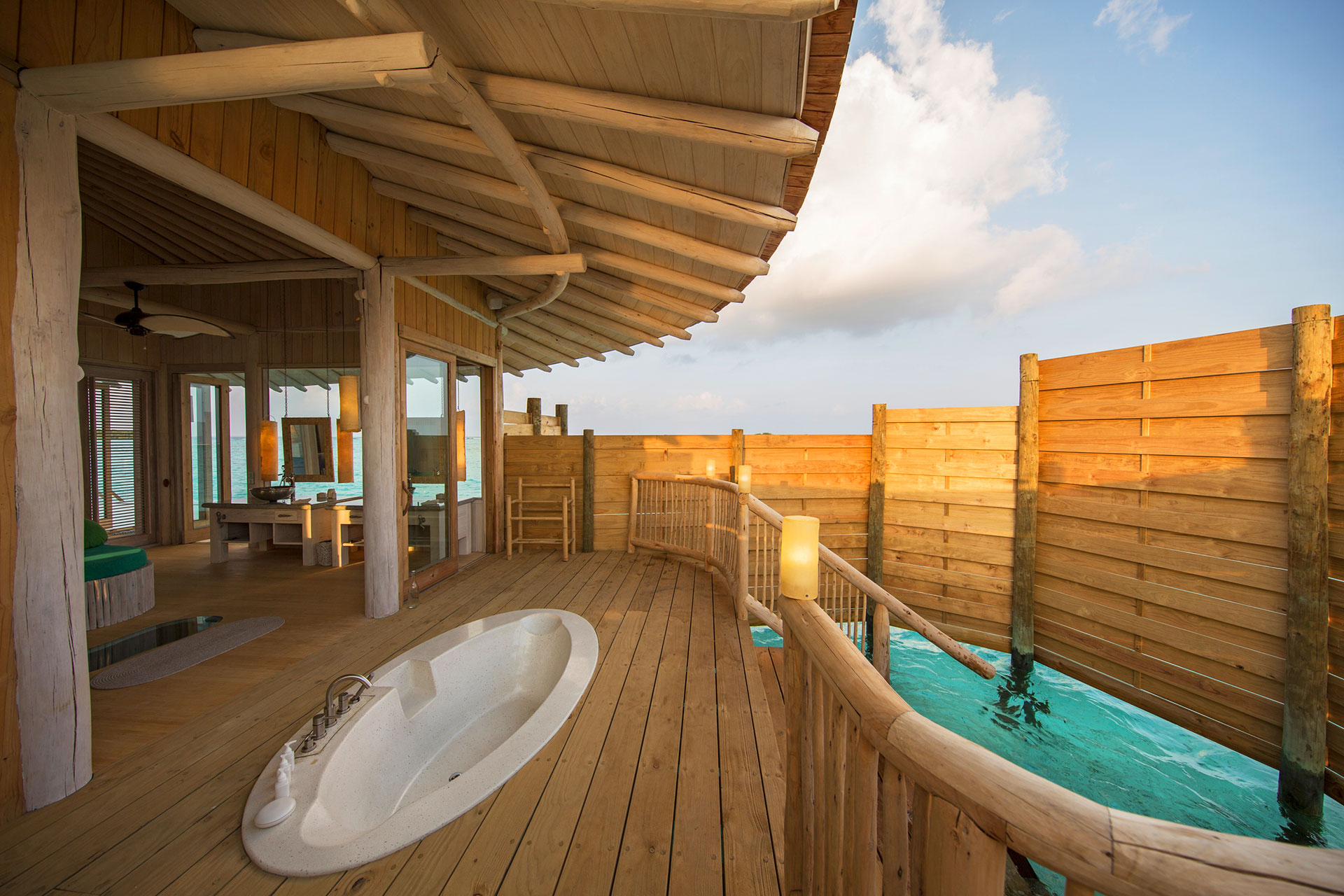
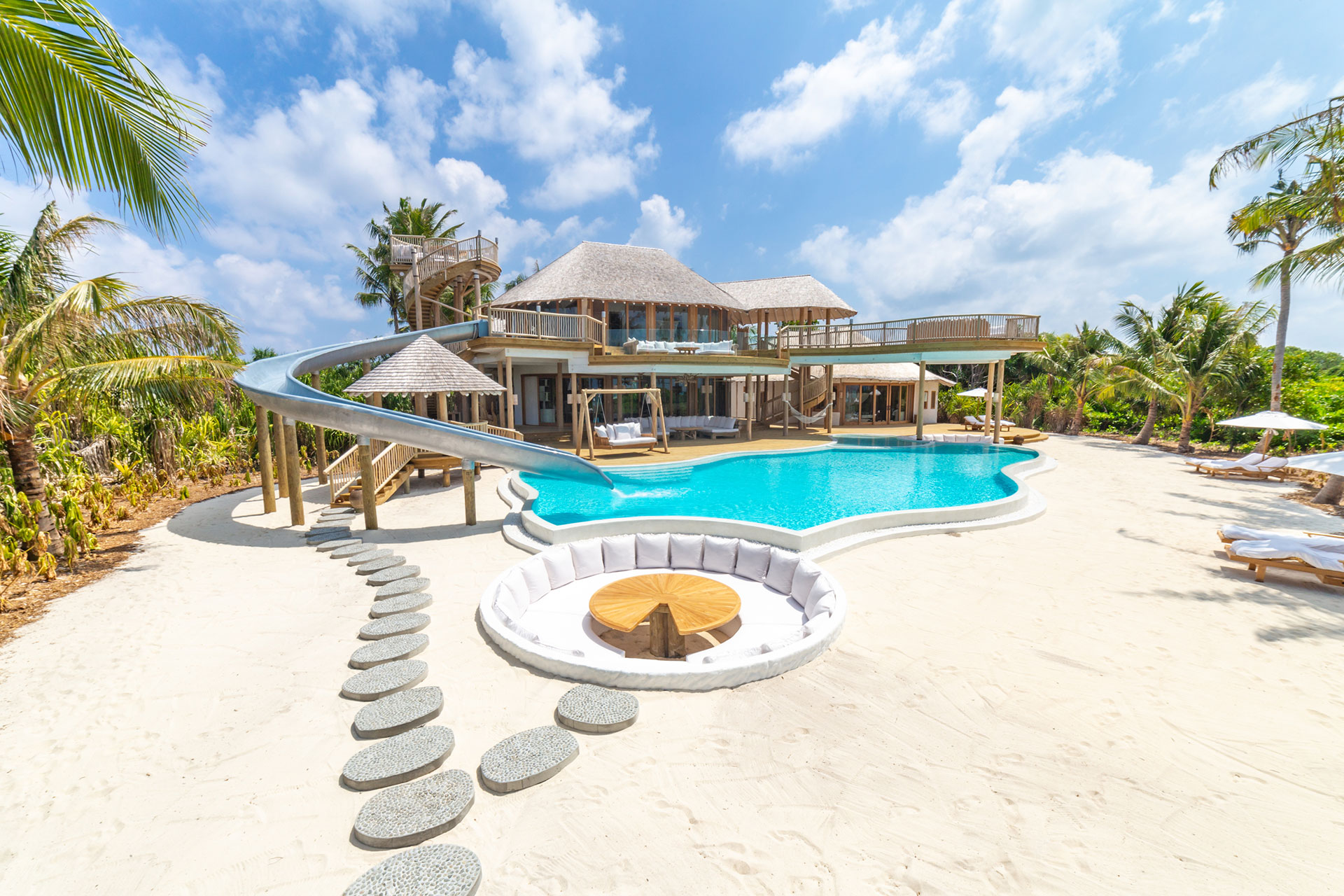
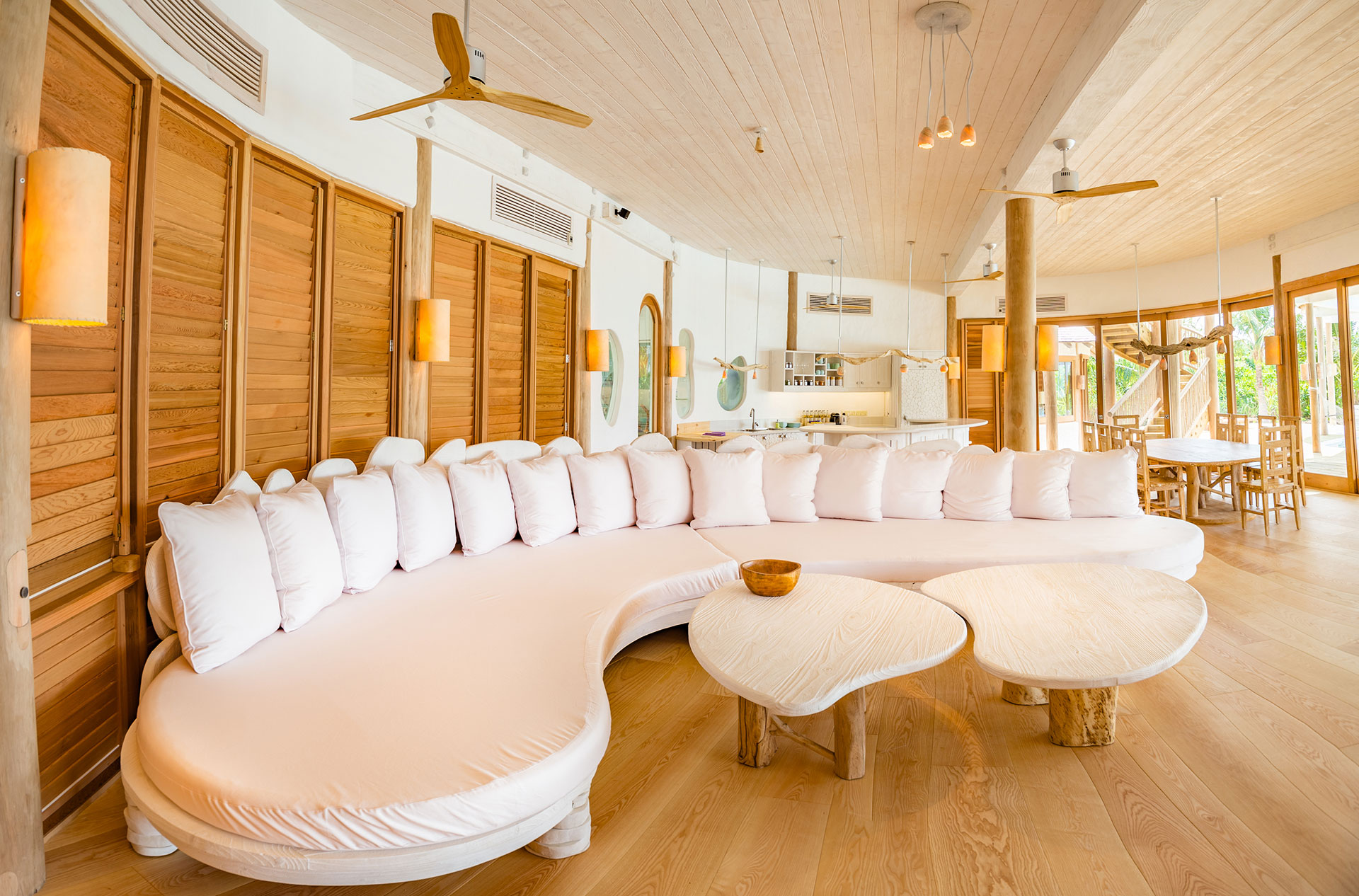
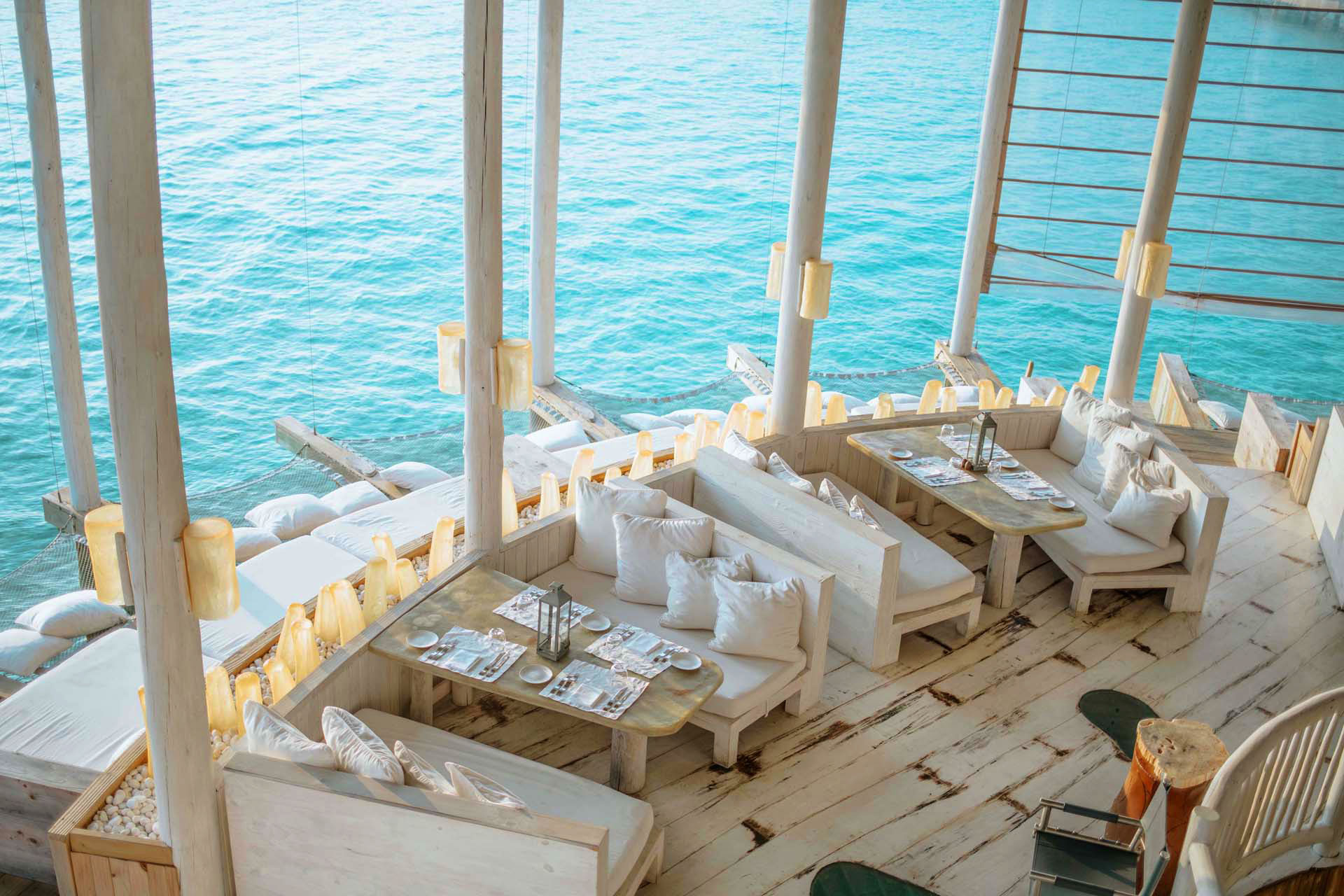
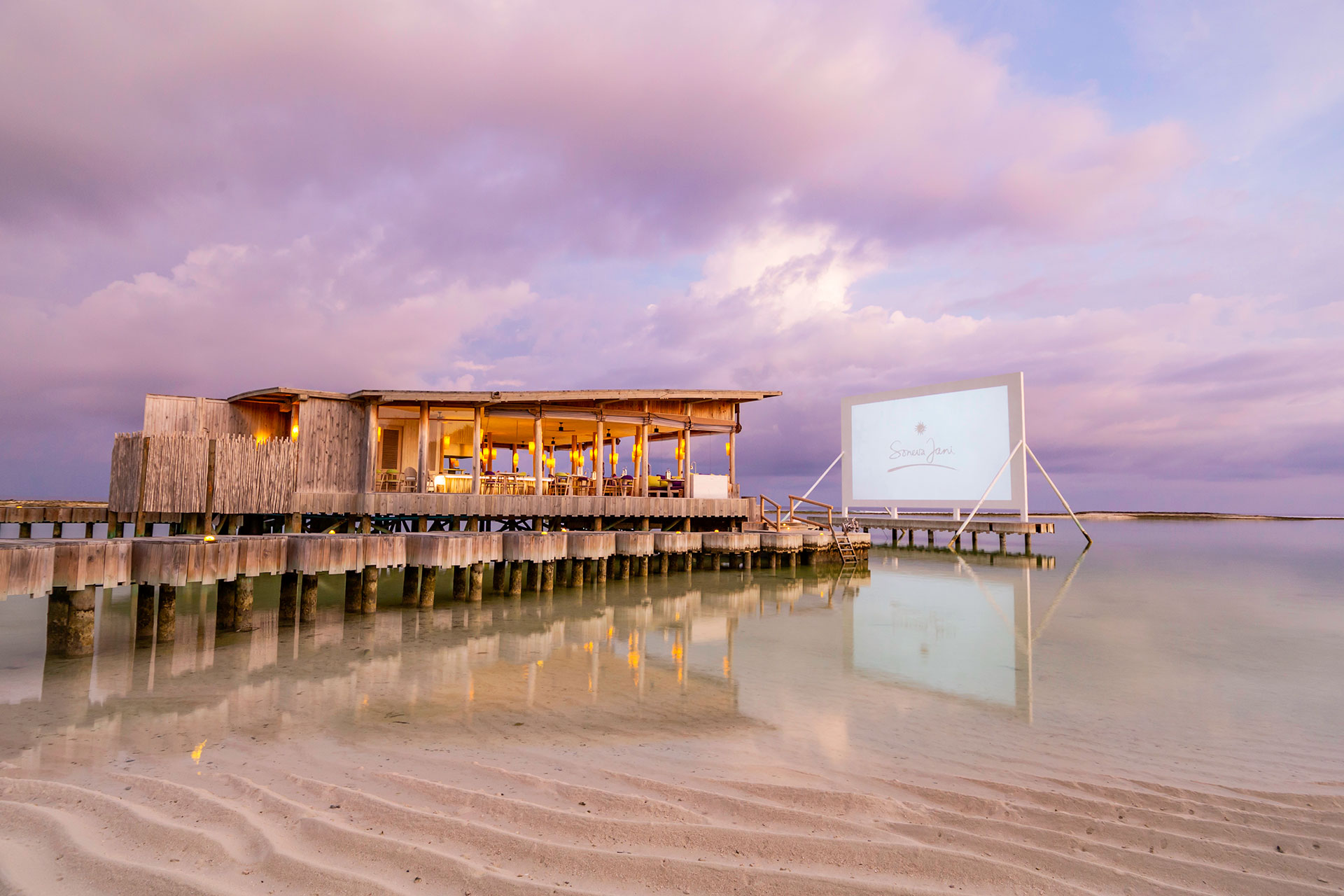
The sense of personal whimsy at Soneva Jani is buffered by one of responsibility. No resort in the Maldives can pretend that ecological changes are not gravely serious. Climate change threatens to make nearly 80% of the Maldives uninhabitable by 2050. The Soneva resorts are painstakingly environmentally friendly — from the organic garden and recycled food waste program to the ethos that maintains a broad swath of ecological projects both on and off their shores. A carbon levy on each guest has funded the planting of half a million trees in Thailand, a 1.5 megawatt windmill in India, and an initiative to distribute energy-efficient cookstoves to communities in Myanmar and Darfur.
Locally, Soneva assists local communities to end the practice of burning waste, and has set up a water-bottling facility that has eliminated the need for some 200,000 plastic water bottles in the islands. Another facility is in the works for this year.
“This may sound like a naive message coming from an island in the middle of the Indian Ocean, accessible only to a handful of travelers,” says a representative from Soneva. “But we see it as an awareness-building experience. We want people to recognize the necessity of repairing the damage that we have caused to the environment; the energy we consume or the water that we take for granted.”
“The hospitality industry can make a huge impact by getting this message across.”
If they can do it while letting you whistle down a slide into a perfect blue lagoon — all the better.
Book Soneva Jani on Tablet Hotels.
